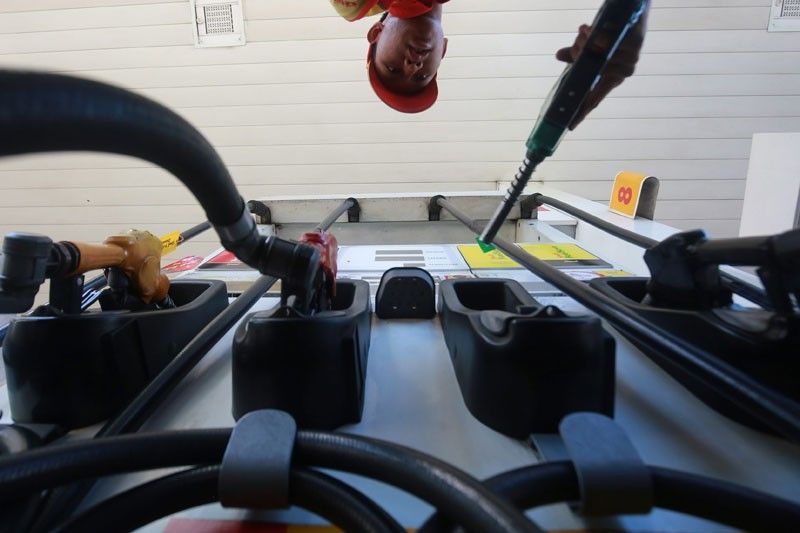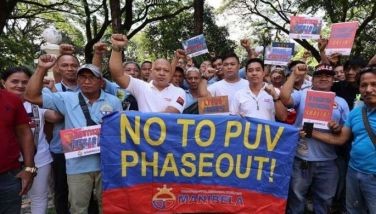No more stopping 2nd fuel tax hike in January 2019

MANILA, Philippines — With oil prices in the world market dropping, the Development Budget Coordination Committee (DBCC) is no longer pushing for the suspension of petroleum excise tax hike next year.
Finance Secretary Carlos Dominguez III said the DBCC is now recommending that the P2 increase in the excise tax on oil be implemented in January next year as scheduled under the second phase of the comprehensive tax reform measure.
“The circumstances have changed drastically,” Dominguez said at a media briefing yesterday, citing the drop in oil prices.
“The DBCC, in a special meeting conducted earlier (yesterday), has decided to recommend the continued implementation of the second tranche of excise taxes on petroleum products under Republic Act 10963 or the Tax Reform for Acceleration and Inclusion (TRAIN) law,” Dominguez said.
“This is not a rushed decision. This is based on what the facts are today,” he said.
The finance chief, however, said the recommendation is still subject to approval of President Duterte. It will be discussed in a Cabinet meeting on Dec. 4.
Malacañang, last Nov. 14, approved the initial recommendation of economic managers to suspend the next tranche of increase in petroleum excise tax.
Dominguez said the recommendation to discontinue the suspension was made in light of the “favorable” outlook in the prices of oil in the international market, as well as easing inflation.
“With month-on-month inflation moderating due to supply-side reforms initiated by the government, coupled with falling petroleum prices in the world market, the DBCC deems the suspension unnecessary,” Dominguez said.
He said Dubai crude oil prices decreased by 14 percent to $68 per barrel in November from $79 per barrel in October.
The finance chief also cited projection in the oil futures market of further decline in prices to below $60 per barrel in 2019.
Under the TRAIN law, the next excise tax increase may be suspended if Dubai crude oil prices, based on the Mean of Platts Singapore, average at least $80 per barrel for three months preceding the scheduled adjustment.
Dominguez said the DBCC also took into consideration the impact of an oil excise hike suspension on the government’s revenues and expenditures for fiscal year 2019.
He said a 12-month suspension is estimated to result in a net revenue loss of P43.4 billion, assuming Dubai crude oil prices average $65 per barrel in 2019.
“The erosion in revenue will lead to a commensurate decrease in government expenditures so as not to breach the target deficit level of 3.2 percent of gross domestic product in 2019,” he added.
Given these developments, Dominguez said the DBCC now projects Dubai crude prices to move within the range of $60 to $75 per barrel in 2019 from its previous projection of $75 to $85 per barrel.
“The DBCC will also keep an eye on the trends of the world oil market,” he maintained.
The government’s revenue target for 2019 was likewise increased to P3.2 trillion from the previous P3.159 trillion. The expenditure program was likewise adjusted upwards to P3.8 trillion from P3.78 trillion.
Even with the scheduled increase in oil excise tax, Dominguez expressed confidence that inflation next year would still settle within the target range due to decreasing price of oil plus the implementation of the rice tariffication law.
“The economic managers are confident that the Duterte administration’s investments in human capital and infrastructure development will continue as planned, which will propel the economic growth of the country into the target range of seven to eight percent in the medium term,” Dominguez said.
“This will enable the Philippines to attain upper-middle income status (with gross national income per capita of $4,000) by end-2019 and reduce poverty from 21.6 percent in 2015 to 14 percent in 2022,” he added.
- Latest
- Trending




























